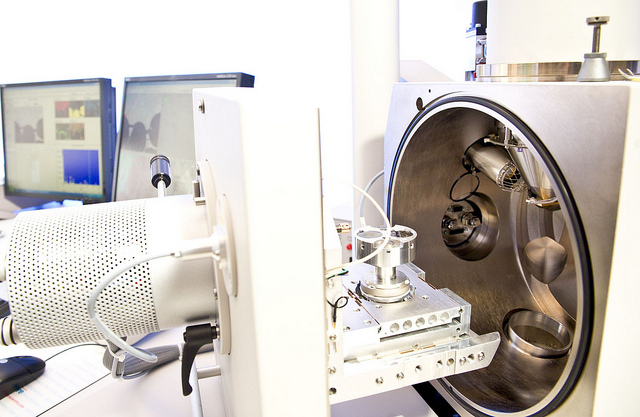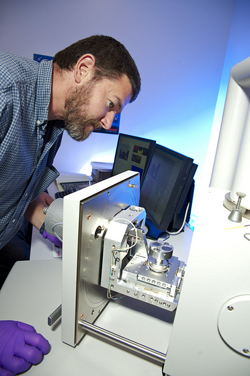The devices are: a research stereo microscope, an atomic absorption spectrometer, and an environmental scanning electron microscope. All three are available for undergraduate and graduate research through the Biology Core Facility.

“Our goal with these instruments and with the Bio Core in general is to support successful student research projects,” Bio Core Manager Anthony Baker says. “What we’ve been able to do with these new tools is provide students with access to research equipment that they otherwise wouldn’t have.”
- The Olympus SZX16 is a dissecting microscope that supports student research by providing access to superior optics, high magnification and a research level imaging system. The university has plans to expand the scope to include fluorescence imaging in the near future, Baker says. The $27,000 instrument was funded through alumni gifts to the Humboldt Loyalty Fund.
- The PerkinElmer AAnalyst 400 is an atomic absorption spectrometer that is used in the analysis of metals within a given sample. It will be particularly useful for undergraduate and graduate students conducting research in plant physiology, soils and engineering, Baker says. It is currently being used by Biology Professor Casey Lu as part of the Plant Physiology course and to conduct bioremediation research. The $30,000 device was funded through student fees and arrived on campus this fall.

- The University’s environmental scanning electron microscope, or ESEM, is a cutting-edge tool that uses electrons to create a highly detailed scan or 3-D image of an object. Since arriving on campus this summer, the device has supported research by Geology Professor Brandon Schwab and his graduate students on the chemical makeup of volcanic rock. The microscope was purchased through a $530,305 National Science Foundation grant last year and is housed in a remodeled room in Science C. This scope is currently being used in Instrumental Methods in Geology and is accessible to undergraduate and graduate students working with a sponsoring faculty member or microscope technician, Baker says.
The Biology Core is a campus wide facility that provides workspace for undergraduate and student projects as part of their coursework or for independent and directed research. The facility is located in Science B 230. For more information, call (707) 826-3232.